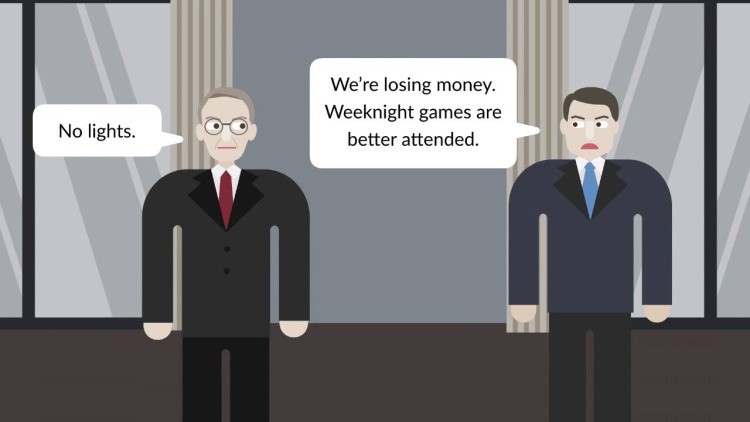Shlensky v. Wrigley
Illinois Appellate Court
95 Ill.App.2d 173, 237 N.E. 2d 776 (1968)
- Written by Max Milstein, JD
Facts
The first game of night baseball was played in 1935, and after that every team except the Chicago Cubs began playing night games. Most major-league games were night games, except those played on weekends. The Cubs did not play night games. As a result, the Cubs sold fewer tickets and were less profitable than any other major-league team. Philip Wrigley (defendant), the president of the Chicago National League Ball Club (defendant), which owned the Cubs, was opposed to playing night games, claiming that night games would be damaging to the neighborhood in which the Cubs played. Shlensky (plaintiff) filed a suit claiming that it would be financially practicable for the Cubs’ stadium to install lights and for the team to begin playing night games and would be very profitable in the long run. Shlensky alleged that the only reason the Cubs did not play night games was because Wrigley felt it was somehow against the spirit of baseball. The trial court dismissed the action, and Shlensky appealed.
Rule of Law
Issue
Holding and Reasoning (Sullivan, J.)
What to do next…
Here's why 907,000 law students have relied on our case briefs:
- Written by law professors and practitioners, not other law students. 47,100 briefs, keyed to 996 casebooks. Top-notch customer support.
- The right amount of information, includes the facts, issues, rule of law, holding and reasoning, and any concurrences and dissents.
- Access in your classes, works on your mobile and tablet. Massive library of related video lessons and high quality multiple-choice questions.
- Easy to use, uniform format for every case brief. Written in plain English, not in legalese. Our briefs summarize and simplify; they don’t just repeat the court’s language.





